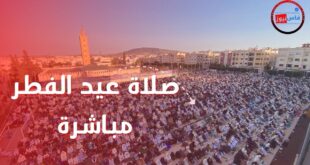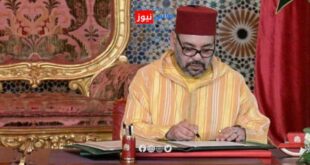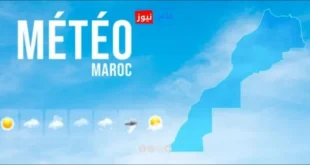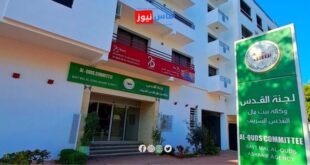In a historic step, Morocco was announced as the host of the 2030 FIFA World Cup, the world’s premier sporting event that will bring together the best national teams. This opportunity comes at a crucial time for Morocco, which seeks to enhance its economic and regional position. Hosting the World Cup is a strategic step towards achieving comprehensive development across various sectors, especially the national economy and tourism. What impact will this hosting have on these sectors, and how will Morocco benefit from this global event?
Boosting the National Economy
Hosting the 2030 World Cup presents a golden opportunity for Morocco to significantly enhance its national economy. According to global economic reports, hosting such an event can contribute to raising economic growth through various channels:
- Investment in Infrastructure: Hosting the World Cup will likely require massive investments in improving and developing infrastructure, such as building and renovating stadiums, enhancing transportation, and upgrading hotels and tourist facilities. These investments will create significant job opportunities and boost the construction sector, as well as stimulate other industries like logistics services.
- Business Opportunities: Hosting the World Cup can open doors for Morocco to international companies in fields like advertising, sports equipment, and TV broadcasting rights. This will boost exports and increase foreign investment flows into the country.
- Growth in Other Sectors: Sectors such as transportation, telecommunications, and financial services are expected to experience a surge as the national economy benefits directly from this major sporting event.
Enhancing Tourism in Morocco
Tourism is one of the key sectors that will greatly benefit from hosting the World Cup. According to a report from the World Tourism Organization (UNWTO), tourism in Morocco is expected to experience an unprecedented boom after hosting the World Cup:
- Increase in Tourist Numbers: The World Cup is expected to attract millions of tourists from all over the world. These tourists will not only visit the host cities but also other cities across Morocco, benefiting from the tourism activities associated with the event. This will increase tourism revenues and boost demand for hotel services, benefiting the local economy.
- Marketing Moroccan Destinations: Hosting the World Cup will allow Morocco to promote its tourist destinations, such as its beautiful beaches, deserts, and historic cities. It will also showcase Moroccan culture to a global audience, enhancing the kingdom’s reputation as a leading tourism destination in the region.
- Creating Jobs in the Tourism Sector: The tourism sector is expected to create thousands of job opportunities in various fields, including hotels, transportation, tour guiding, and logistics services. This will contribute to reducing unemployment, particularly in the regions hosting the matches.
Impact on the Sports Sector
Hosting the 2030 World Cup will not only benefit the economy and tourism but will also enhance Morocco’s position in global sports. This event will provide Morocco with the opportunity to develop its sports facilities and improve its sports system across all levels by:
- Improving Sports Infrastructure: The development of stadiums and sports facilities will align with FIFA’s global standards, improving the quality of sports in the kingdom and attracting additional investments in this sector.
- Inspiring the Youth: Organizing such a major sporting event will motivate Moroccan youth to engage in sports activities, which will contribute to the development of sporting talents and expand the base of popular sports in the country.
Challenges Morocco May Face
Despite the many benefits that Morocco will reap from hosting the World Cup, there are several challenges that the kingdom may face:
- Logistical Challenges: Organizing such a large-scale event requires high coordination across multiple sectors such as security, transportation, accommodation, and communications. The success of the event will depend on Morocco’s ability to provide these services efficiently.
- Environmental Challenges: The urban expansion and development that accompany the World Cup may increase pressure on the environment. Therefore, the Moroccan government must consider environmental sustainability in its plans by implementing green and eco-friendly projects.
Future Outlook
Hosting the 2030 World Cup will serve as a stepping stone for Morocco to enhance its position on the global stage. According to studies by the World Bank, the hosting will create a favorable environment for boosting both domestic and foreign investments and will support major developmental projects in the kingdom.
Source: Fes News Media
 فاس نيوز ميديا جريدة الكترونية جهوية تعنى بشؤون و أخبار جهة فاس مكناس – متجددة على مدار الساعة
فاس نيوز ميديا جريدة الكترونية جهوية تعنى بشؤون و أخبار جهة فاس مكناس – متجددة على مدار الساعة















